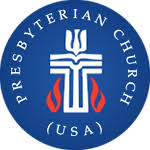Below is a pastoral letter explaining how PDA (Presbyterian Disaster Assistance) is responding to the global pandemic of the Covid-19 virus. Please read and find out how you can help! I have included the link to the original article and website at the end. The letter is written by Rev Dr Laurie Kraus director of PDA.
Dearly Beloveds
When did we see you?
In company with the whole church—its congregations, pastors and chaplains, mid councils, and national staff, Presbyterian Disaster Assistance (PDA) has entered this strange new world of pandemic, beginning our response to COVID-19 with a solidarity grant to our ACT Alliance partner in China in February, to support their local response. As the virus began to spread, PDA prepared and offered guidance to Presbyterian Church (U.S.A.) congregations for safe practices in the event of a widespread contagious disease outbreak, an outbreak which has now reached the level of pandemic.
A pandemic is, in our lifetimes, an almost unprecedented kind of disaster. In its breadth, it surpasses the flu pandemic in 1968. In its scope, range, and potential for mortality, its nearest and most sobering parallel is the HIV/AIDS pandemic that began in the mid 1970’s and only achieved effective treatment in 2012. It is clearer, day by day, that COVID-19 affects all of us. It requires attention, a commitment of resources, a duty of care, and a dedication to the common good from all of us. Even as a sense of vulnerability begins to affect some of us for perhaps the first time, make no mistake, it makes those who are already vulnerable, more so. So even as we live into the realities of what it means to respond to a disaster with universal impact, we put first our commitment to see, listen deeply to, and support the most vulnerable in our midst. This is in keeping with Christ’s invitation in Matthew 25, that whenever we respond to those who are hungry, thirsty, naked, unhomed, imprisoned, or sick, we respond to the needs of Jesus. And there is a peculiar grace in the fact that, because of pandemic, none among us can now say, when did we see you? It is, quite literally, impossible for us not to see.
What is Presbyterian Disaster Assistance doing now?
PDA is drawing 2.7 million dollars from reserves to seed the COVID-19 ongoing response both in the United States and internationally. These are funds that have been given by donors to PDA’s general fund, meant to meet the response needs of disasters small or large that are not able to be funded by special appeals. Although money is not the only thing communities need in this moment, it is one resource, alongside many others, that can be helpful. We are incredibly grateful to donors, past and continuing, who trusted PDA enough to designate their funds to the PDA general disaster account. This is where the bulk of our reserve for COVID-19 is being drawn from. We are also incredibly grateful to the churches and individuals who support One Great Hour of Sharing, the church-wide offering collected during Easter, which not only provides our core funding, but also supports two sibling programs, the Presbyterian Hunger Program and Self Development of People, two programs whose work in addressing systemic poverty, hunger and centering the needs of communities historically marginalized is as critical in the face of COVID-19 as it is to our global human flourishing every day. Churches and communities wishing to think about how best to allocate mission resources during this pandemic can gain insight and support from any and all of us.
In addition to making these grant funds available, PDA is ramping up our Emotional and Spiritual Care programs, including Compassion Fatigue and Resiliency workshops, and we will be making them broadly available. We are working with the Mental Health Ministries office and the community Mental Health Network established after our last General Assembly. We will also work with Stony Point Center in New York, looking toward some virtual and (in time) actual gatherings for pastoral respite and reflection.
This is a beginning. We realize that two and a half million dollars is not a great deal of money when spread over the needs of partners at home and all over the world. And we realize that fundraising efforts now for COVID-19, and in general for the ongoing work of disaster response—the floods, fires, hurricanes, tornadoes and mass violence events that continue to occur with indifference to the impact of COVID-19—is going to be challenging as all economic systems are affected at present. We respect the challenges especially of our churches and mid councils as they continue to serve and in some cases, work to survive.
We want to assure you that the commitments PDA has made to ongoing disaster responses will continue to be met; and we will continue to respond to new disasters as they occur, to the best of our ability. Our wonderful National Response Team, though physically grounded, will “virtually deploy” in support of mid councils and congregations when disaster strikes. Volunteer work teams and the host sites that support them—more than forty of them across the U.S. and Puerto Rico presently—are also on hold—but teams are already looking to reschedule, because the mission of Christ’s church continues and God’s people deeply want to be connected in these essential ways, that support the healing and rebuilding of neighbors. How sweet it will be when we can resume face to face caring for one another…and how much we will learn, as we practice being together in different ways.
The core commitments of our General Assembly’s Matthew 25 invitation are helpful ways for us to center our awareness, and focus our response efforts. Mindful of our church’s commitment to the end of systemic poverty, we focus our resources and our deepest attention on those who are most vulnerable: lacking food security, adequate shelter, access to clean water and the means to practice the hygiene that is so important in fighting COVID-19’s spread. This community of the vulnerable includes the many refugees, asylum seekers, and people on the move or displaced; here in the United States and globally. They deserve our best efforts and our full-throated advocacy. Embracing our Matthew 25 call to fight to eradicate structural racism, we are listening carefully to our colleagues of color, and those who lead ministries among our Asian, African-American, Native American and Latinx congregations. We will be prioritizing the grant requests which help address critical needs in historically marginalized and excluded communities. We particularly want to lift up the advocacy efforts and echo the voices that urge us to be clear and strong in repudiating the hateful racist actions and expressions that have targeted siblings of Asian descent during this pandemic.
The experience and training that more localized disasters has provided to the church will serve all of us well in this moment. The principles of response are the same: Work as a community. Share resources. Let everyone do their own part—knowing that not everyone has to do everything. Don’t be reactive, which is rooted in fear and in our perception of threat. but be responsive. Keep breathing deeply, and relax your body. Listen, Assess and Respond, then repeat. A Kenyan colleague used to remind me: if you want to go fast, go alone. If you want to go far, go together. This is not a sprint, but a long walk toward a destination we can not yet see. Together we are showing up now, for the short term and will remain in the work for as long as it takes, so that we can arrive together. We are, as the hymn reminds us, walking in the light of God.
In the Light,
the Rev. Dr. Laurie Kraus, Director, Presbyterian Disaster Assistance, Presbyterian Mission Agency
Presbyterian Disaster Assistance LinkTo support PDA’s COVID-19 response, designate gifts to DR000148 and give generously to One Great Hour of Sharing












